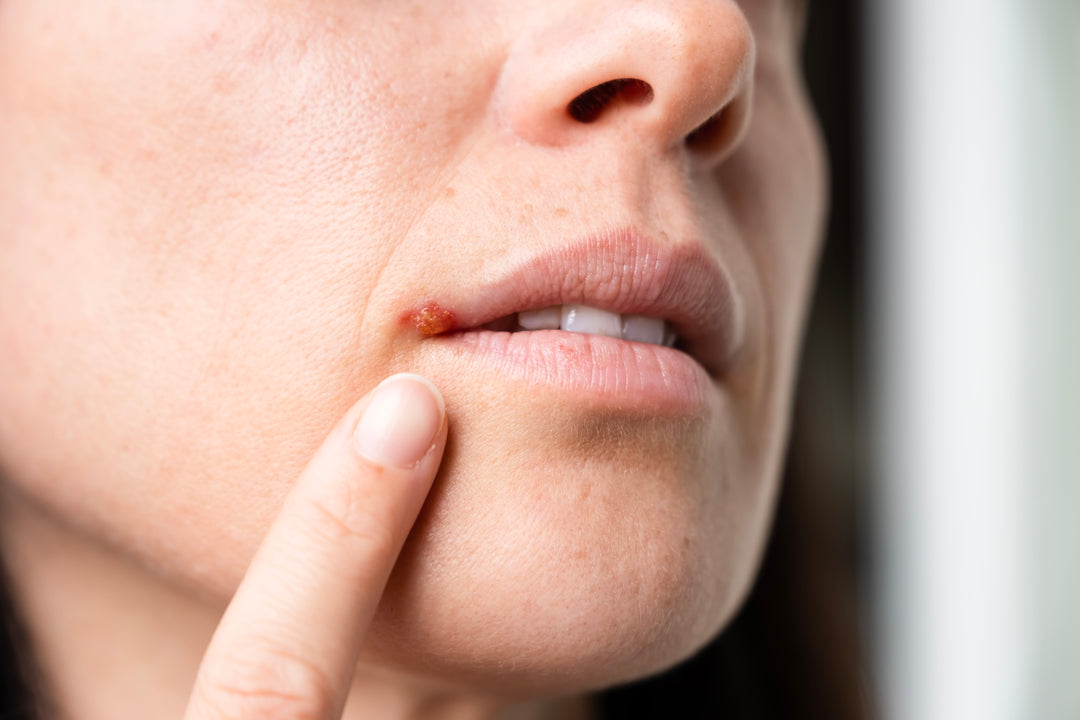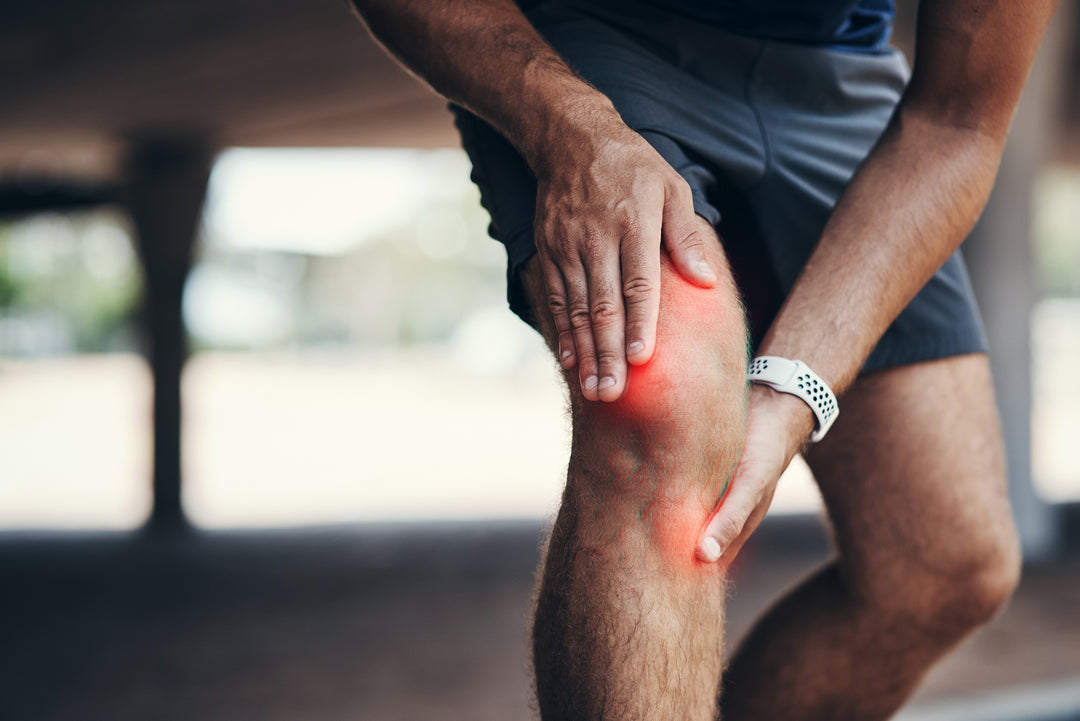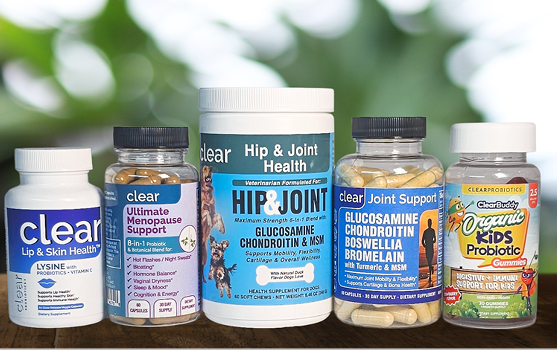What Are Good Supplements for Anxiety Attacks?
Anxiety is one of the most common mental health disorders in the United States, affecting 40 million adults each year. While there are many prescription medications available to treat anxiety, some people prefer to use natural supplements instead. What are good supplements for anxiety?
If you're considering trying a natural supplement for your anxiety, here are some of our top picks for what are good supplements for anxiety relief.
Table of Contents
What are Good Supplements for Anxiety?
If you're someone who struggles with anxiety, you know that it can be tough to find ways to relax and ease your symptoms. Luckily, there are a number of natural supplements that have been shown to be effective in reducing anxiety.
Herbal teas are a great way to help ease anxiety. There are many different herbs that can be used to help ease anxiety, and each one has its own unique benefits.
Here are seven of the best herbal teas for anxiety.
1. Chamomile Tea
Drinking chamomile tea before bed is a relatively safe way to promote sleep. However, it is not recommended for people who take certain prescription medications, as it might interfere with their effects.
2. Lavender Tea
Lavender aromatherapy can be a good, natural treatment for your anxiety disorder. A few drops in your bath and using a room spray with a few drops of essential oil in it can really help you relax. It won’t get rid of your disorder, but it can help.
3. Lemon Balm Tea
The calming effects of drinking a cup of lemon-balm herbal tea include reducing inflammation, lowering cortisol levels, and increasing GABA levels.
Lemon balm extract has also been shown to significantly reduce stress and anxiety in humans.
4. Passionflower Tea
Passionflower is a soothing plant that is commonly used as a home remedy for anxiety and stress. It has been shown to reduce feelings of tension, increase relaxation and improve sleep.
5. Skullcap Tea
There are two types of skullcap medicinal herbs. American skullcap is Scutellaria lateriflora while the Chinese skullcap is Scutellaria baicallensis. Both varieties have been shown to reduce anxiety and stress-related disorders in human adults.
6. Valerian Root Tea
For centuries, valerian has been used as a tea or in herbal supplements to help calm the nerves.
Valerian root extract is used to treat insomnia and anxiety. The active compounds in valerian are thought to promote relaxation and increase levels of the calming brain chemical, gamma-aminobutyric acid (GABA).
7. Ashwagandha Tea
An Ayurvedic plant, ashwagandha has been shown in some studies to reduce anxiety in some individuals.
In small studies in adults, ashwagandha has been shown to decrease symptoms of anxiety and depression, improve sleep quality, and increase overall well-being.
CBD Oil for Anxiety
If you're looking for natural ways to improve your anxiety, you may want to consider using CBD oil. Cannabidiol oil is derived from the hemp plant and has been shown to provide relief from anxiety and other conditions.
Here are 5 ways to use CBD oil for anxiety.
1. Take It Orally
CBD oil can be taken orally in the form of sublingual drops or capsules. The recommended dosage for anxiety is 30-60 mg per day.
2. Rub It On Your Skin
CBD oil can also be applied topically to the skin in the form of lotions, creams, or salves.
3. Inhale It
CBD oil can be inhaled using a vaporizer or e-cigarette.
4. Eat It
CBD oil can be added to food or beverages in the form of edibles.
5. Use It As a Suppository
CBD oil can also be used rectally or vaginally in the form of suppositories.
If you're considering using CBD oil for anxiety, be sure to talk to your healthcare provider first to make sure it's right for you.
10 Nutrients That Can Help With Anxiety Relief
There are a lot of different ways to deal with anxiety and depression. Some people may need medication, while others may just need a little help from natural supplements.
What are good supplements for anxiety? Here are 10 nutrients that can help.
1. Probiotics
Probiotics are live bacteria that are found in fermented foods like yogurt and sauerkraut. They've been shown to have a number of health benefits, including reducing anxiety and depression.
2. Magnesium
Magnesium is a mineral that's involved in over 300 biochemical reactions in the body. It's been shown to help with anxiety by reducing the levels of cortisol, the stress hormone.
3. Omega-3 Fatty Acids
Omega-3 fatty acids are a type of unsaturated fat that's been shown to have anti-inflammatory effects. This means they can help reduce the inflammation associated with conditions like anxiety and depression.
Fatty acid deficiencies can cause some mental symptoms, and fish oil supplements can help alleviate those.
4. Vitamin B6
Vitamin B6 is a water-soluble vitamin that's involved in many reactions in the body. It's been shown to help with anxiety by reducing the levels of the amino acid tryptophan, which can be converted into the neurotransmitter serotonin.
5. Vitamin B12
Vitamin B12 has been shown to help with anxiety by reducing the levels of the amino acid homocysteine, which has been linked to anxiety and depression.
 (Source)
(Source)
6. Folic Acid
Folic acid deficiency has been linked to higher levels of anxiety and depression. When combined with vitamin B12, folic acid helps the body process the neurotransmitter, which is responsible for regulating your mood.
7. Calcium
Did you know that calcium can help to calm your nerves? This mineral can also help to prevent feelings of nervousness, agitation, or irritation.
Calcium is involved in the regulation of muscle contraction, nerve transmission, and blood clotting.
8. Chromium
Chromium is a trace element that's involved in the metabolism of carbohydrates, fats, and proteins. It's been shown to help alleviate depression by inducing and enhancing the release of the mood-regulating neurotransmitter norepinephrine.
9. Selenium
Selenium is a trace element that's involved in the metabolism of thyroid hormones.
In a 1991 study on the effects of dietary levels of selenium on mood and mental well-being, it was found that those with the highest intake of this mineral reported feeling more cheerful, energetic, and mentally alert. Conversely, those with the lowest intake were more prone to feelings of sadness, fatigue, and lethargy.
Studies have continued to confirm that low dietary intakes of selenium are linked with an increased risk of depression.
10. Zinc
Zinc is a mineral that's involved in the metabolism of over 300 enzymes.
A study in Australia found that those who consume the least amount of dietary zinc were 30-50% more likely to experience symptoms of depression than those that ate the most.
11 Foods That Reduce Stress
If you're feeling stressed, you're not alone. Stress is a common problem that can affect anyone at any time.
While there are many different ways to cope with stress, one simple way to help reduce your stress levels is by eating foods that help to reduce stress.
What are good supplements for anxiety? Here are 11 foods that can help to reduce stress.
1. Blueberries
Blueberries are tiny but pack a powerful punch when it comes to fighting off stress. The berries are rich in Vitamin C and contain high levels of powerful antioxidant compounds that help protect and repair our cells and fight off the effects of stress and anxiety.
2. Dark Chocolate
Flavonoids in dark chocolate may protect your cells and lower blood pressure, increase blood flow to the brain, and lessen anxiety. Dark chocolate with at least 70% cacao is your best bet, but don't go too crazy.
3. Salmon
Eating salmon is a great way to promote brain function, as it contains vitamin D and Omega-3 which are great for the brain.
4. Walnuts
The Omega-3, especially the EPA and DHA, can reduce symptoms of depression. This is directly related to the amino acid tryptophan which is needed to synthesize the neurotransmitter, serotonin. Walnuts are rich in this essential amino, which helps us feel calmer, happier, and more comfortable.
5. Chamomile Tea
Chamomile tea has long been touted as a calming beverage, and recent research backs this up. A 2016 study examined the effects of long-term consumption of the herb on patients with high levels of anxiety.
6. Yogurt
A 2015 study found that eating certain healthy foods, such as cultured dairy, can reduce anxiety in some individuals. Other studies have shown that having a healthy balance of good bacteria and bad bacteria in the gut can reduce stress.
7. Green Tea
Green tea is well-known for its calming properties. Theanine, an amino acid found abundantly in tea leaves, helps to relax your mind and reduce stress. Researchers have also found that theanine reduces anxiety and helps to improve concentration.
8. Spinach
Green leafy vegetables, such as spinach and swiss chard, could help those with anxiety disorders feel calmer. Some researchers have shown that changes in the body’s levels of magnesium may play a part in some types of mood disorders.
9. Avocado
Vitamin B6 helps your body produce the neurotransmitter serotonin which affects your mood. Other members of the B-vitamin family such as thiamine, riboflavin, and niacin have a positive effect on the nervous system.
The healthy fats in avocados, like monounsaturated and polyunsaturated fats, help lower blood pressure and cholesterol. The high levels of vitamin B6 and folate in avocados may also improve mood, reduce depression, and lessen feelings of stress and anxiety.
10. Oats
Oats and other whole grains like brown rice and barley are digested slowly, which impacts your levels of the neurotransmitter serotonin. Low amounts of this chemical have been linked to feelings of anxiety and depression.
Eating oatmeal for breakfast, and other low-sugar, low-glycemic foods, can help to steady your blood sugar levels, which can reduce feelings of anxiety and stress.
11. Bananas
The B vitamins in bananas, such as folic acid and B6, help produce the neurotransmitter, serotonin, which can improve your mood. For an added benefit, spread some almond butter, peanut butter, or cashew butter on your sliced-up fruit.
FAQs About What Are Good Supplements for Anxiety
Which supplements are best for anxiety?
There is no one-size-fits-all answer to this question, as the best supplements for anxiety may vary depending on the individual's specific needs. However, some good supplements for anxiety include omega-3 fatty acids, magnesium, probiotics, and ashwagandha.
What can I take to naturally calm anxiety?
There are many natural remedies for anxiety that can help calm anxiety. Some of these include CBD oil and tea.
Conclusion
What are good supplements for anxiety? Be sure to talk with your healthcare provider before taking any supplement, and always follow the recommended dosage.
With a little trial and error, you should be able to find a supplement that works well for you and helps reduce your anxiety symptoms.








